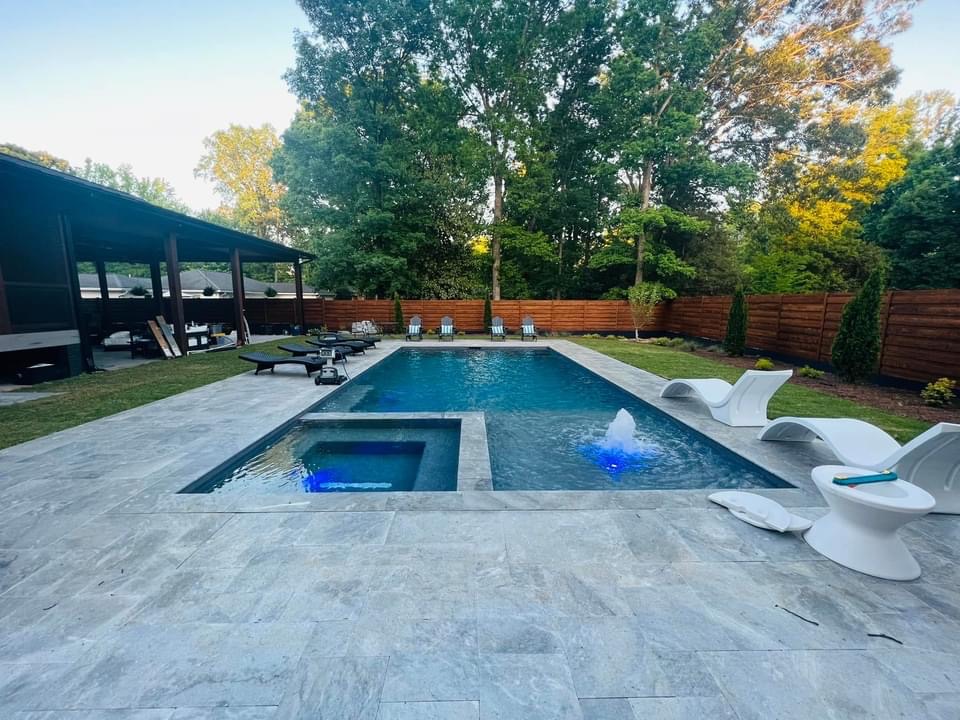
What Makes Gunite Pools Special? Cost, and Expectations
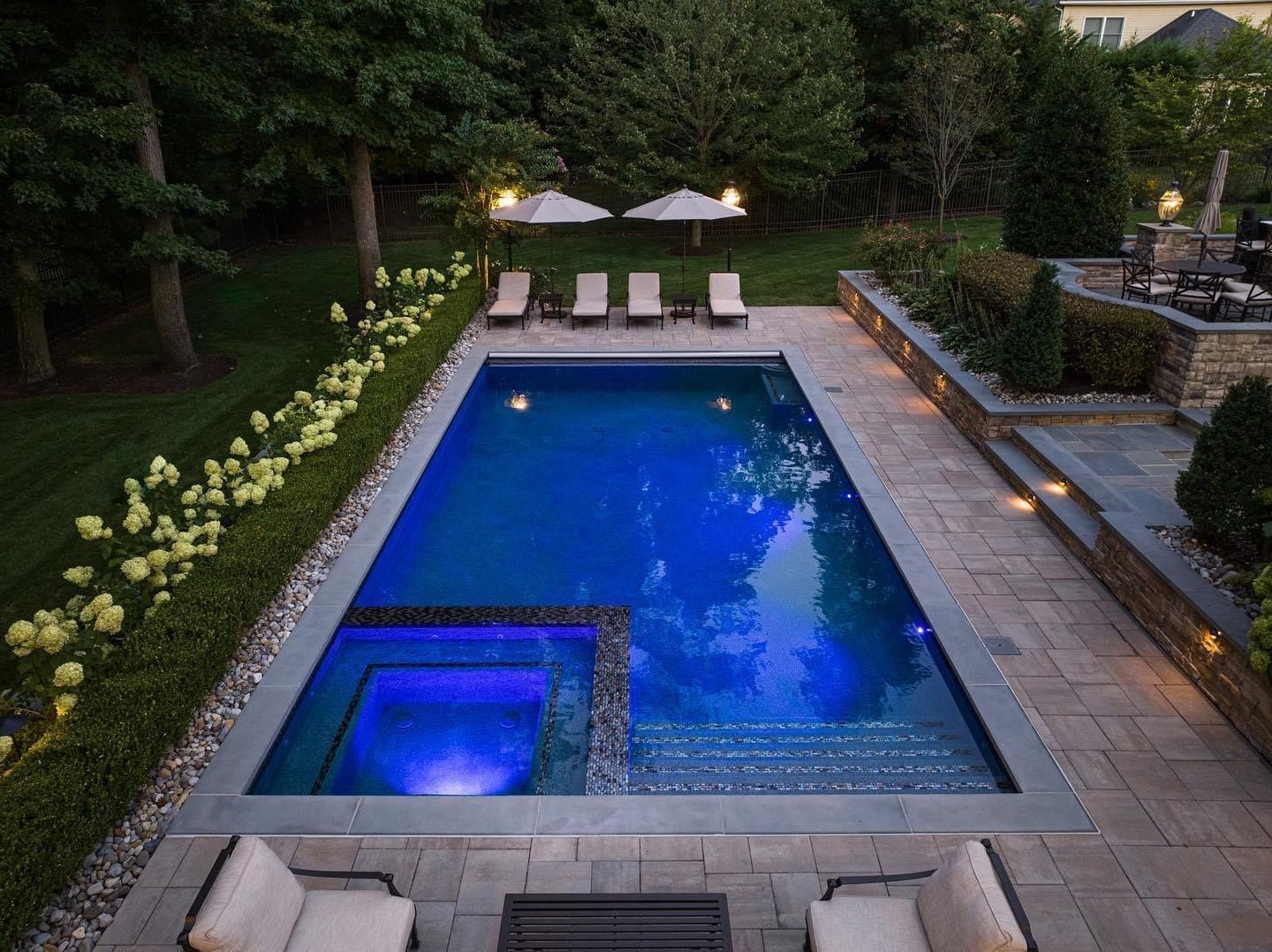
If you’re contemplating elevating your backyard with a swimming pool, you’re likely familiar with the common types: concrete, fiberglass, and vinyl liners. Among these, gunite pools, a subtype of concrete pools, stand out for their durability and customization possibilities. But what exactly are gunite pools, and how do they differ from other pool types?
Gunite pools, known for their robustness and flexibility, are not just any ordinary pools. They are concrete pools constructed through a unique process, offering a blend of durability and aesthetic appeal. As we unravel what they are, we’ll explore the intricate details of gunite pools, their construction process, costs involved, and what you can expect in terms of maintenance.
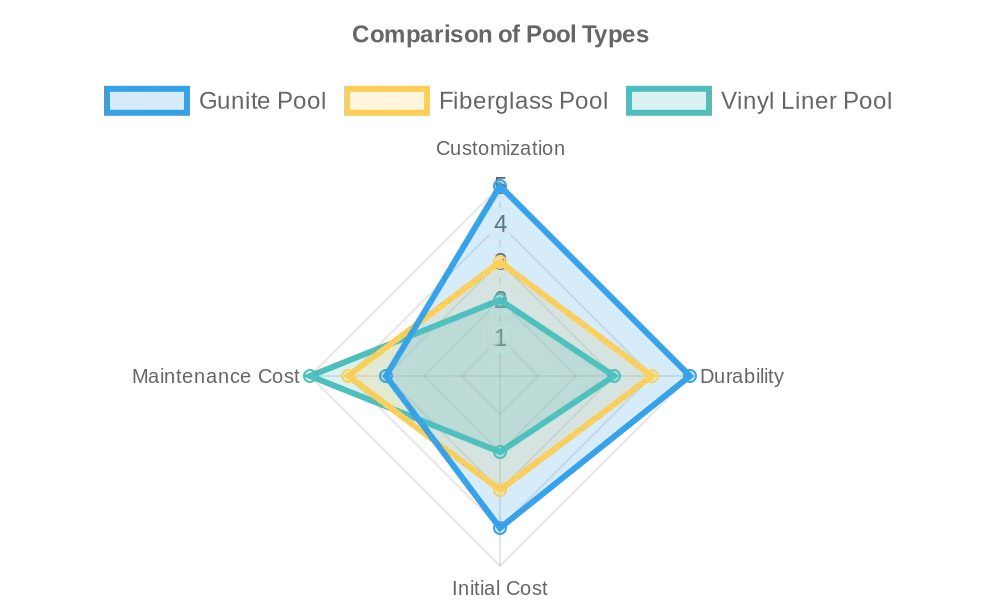
Latest

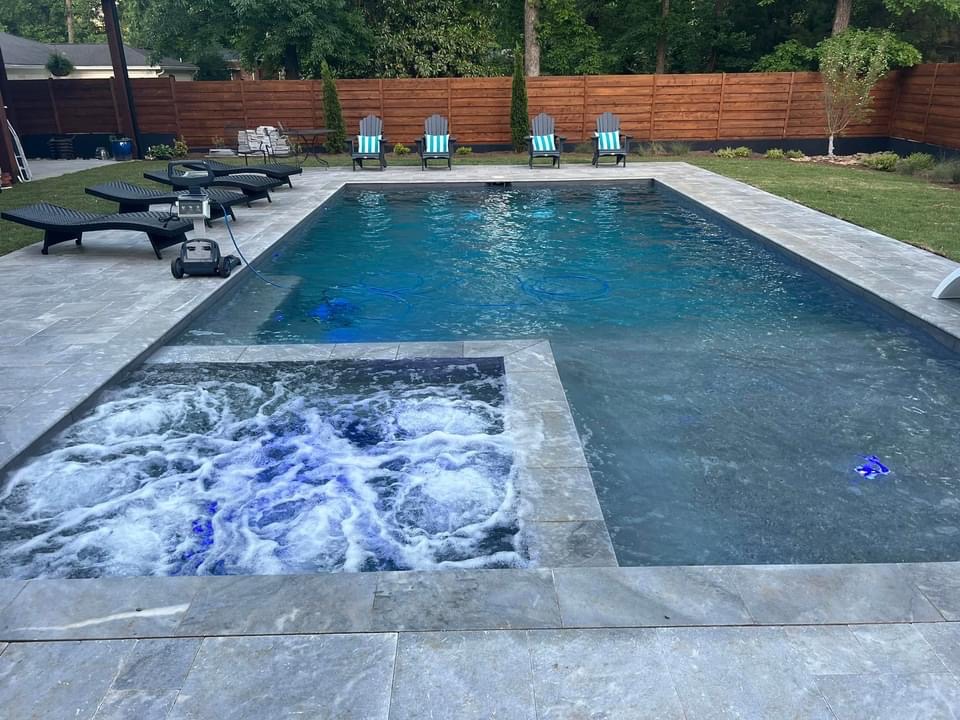
Fiberglass vs Concrete Pools: Pros, Cons, and Cost Comparisons
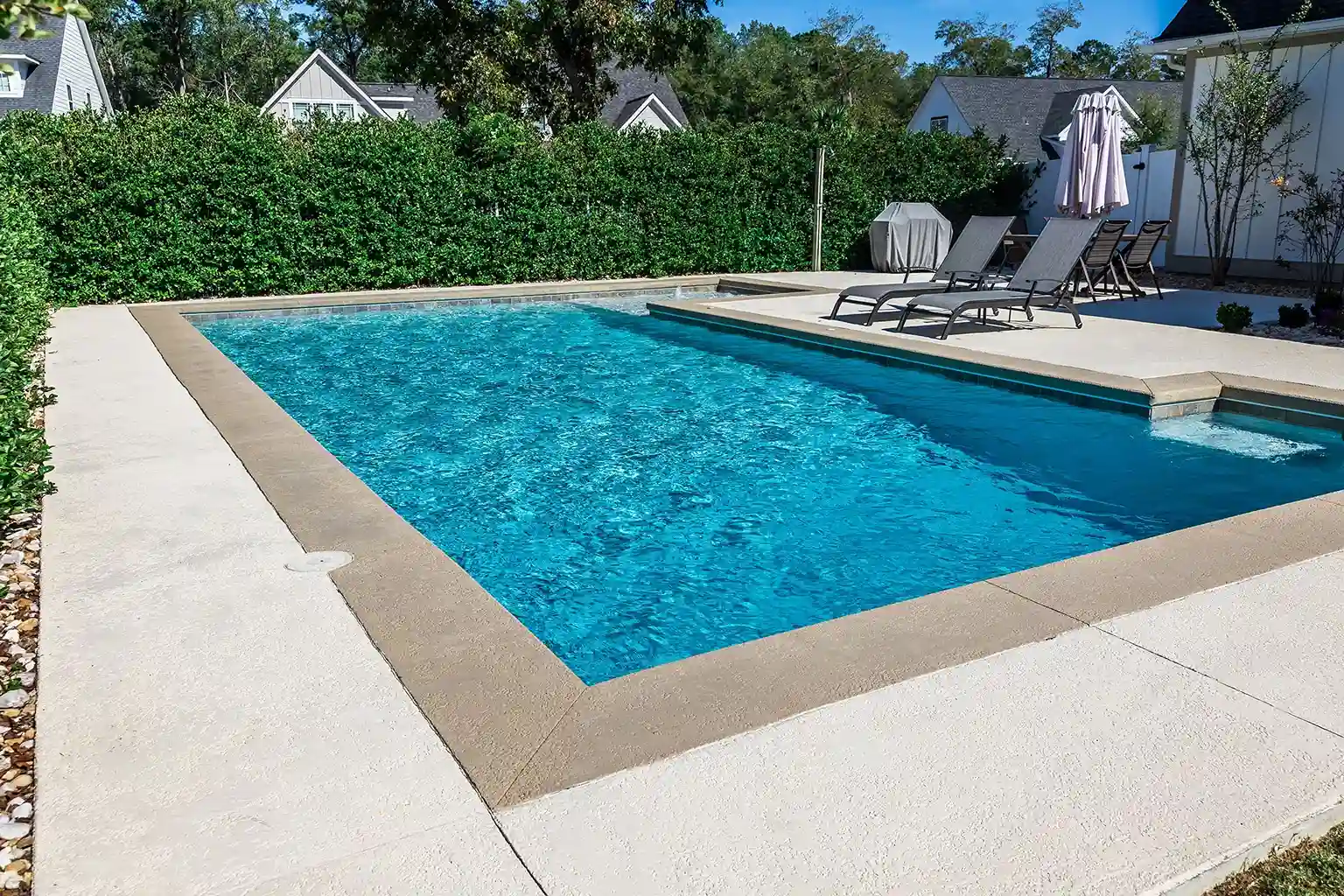
What is the average concrete pool cost for homeowners today?
Categories
History and Composition of Gunite
Gunite, essentially concrete, has a rich history in construction. This material has been shaping structures for thousands of years, with Roman architecture being a prime example of its durability. The term “gunite” specifically refers to a method of applying concrete, transforming it from a mixture into a structurally sound and visually appealing element.
Unlike traditional concrete, gunite is applied using pressurized air to propel a dry mix through a hose, combined with water at the nozzle. This results in a highly adhesive and malleable material, perfect for shaping custom pool designs.
Understanding the Gunite Application Process
Developed in 1907 by Carl Akely, the gunite process revolutionized concrete applications, especially in pool construction. It allows for a thinner layer of concrete to be applied with high speed and precision, making it ideal for forming the complex contours of a swimming pool.
The nozzleman’s expertise is crucial in this process, as they control the mix and application to ensure the concrete adheres properly and maintains structural integrity. This level of skill and precision sets gunite pools apart from other types.
The Construction Journey of a Gunite Pool
Preparation
The journey of creating a gunite pool begins with an excavation process tailored to your chosen design. Precision in digging the hole to the exact specifications of depth, width, and shape is crucial. Following this, the groundwork involves laying out plumbing and reinforcing the excavated area with steel rebar. This rebar framework serves as the skeleton onto which the gunite will be applied.
The Art of Applying Gunite
After setting up the base, the spotlight turns to the gunite application, a process that differentiates these pools from others. Gunite, applied by skilled technicians, adheres to the steel rebar, forming the pool’s sturdy structure. This phase is marked by artistry and precision, as the gunite is layered stage by stage, allowing for intricate designs and shapes unattainable with traditional concrete pools.
One of the standout features of gunite is its compatibility with staggered applications. Unlike other concrete forms, which may develop structural flaws if not applied simultaneously, gunite’s application flexibility ensures a seamless and robust finish even if applied over several days.
Curing: The Waiting Game
Once the gunite is in place, it enters the curing phase. This critical period of approximately 28 days allows the material to bond at the molecular level, achieving maximum strength and resilience. It’s a period of anticipation, where the foundational structure of your dream pool solidifies, preparing to be a centerpiece of leisure and aesthetics.
What Sets Gunite Pools Apart
Gunite pools have been a symbol of luxury and customization since the 1940s. Post World War II, they became a coveted feature in suburban homes, signifying a blend of comfort and elegance. The method’s adaptability made it a go-to choice for those seeking unique pool designs without the extensive use of heavy machinery or time-consuming mold constructions.
Understanding the Costs
When it comes to installing a gunite pool, the financial aspect is a significant consideration. Historically, the cost of constructing a gunite pool ranged between $55,000 and $100,000. However, in the current market, particularly influenced by the COVID-era dynamics, these costs have seen an uptrend, often starting at $100,000 and escalating based on customization and size.
The uniqueness of gunite pools lies in their ability to be tailored to any design, shape, and depth, which, while attractive, can also drive up the costs significantly. This aspect of customization is both a blessing for those seeking uniqueness and a factor to consider for budgeting.
Navigating the Maintenance Landscape
Maintaining a gunite pool is an ongoing commitment. Over a decade, the maintenance costs can accumulate to over $27,000. This figure includes expenses such as chemicals, electricity, and necessary upkeep routines like replastering and acid washing. The durability of gunite pools comes with the responsibility of regular maintenance to preserve their aesthetic and structural integrity.
The Long-Term Perspective
While the upfront costs and maintenance might seem daunting, it’s crucial to view a gunite pool as a long-term investment in your property and lifestyle. Gunite pools not only enhance the aesthetic appeal of your property but also offer a durable and lasting solution for those seeking a permanent addition to their homes.
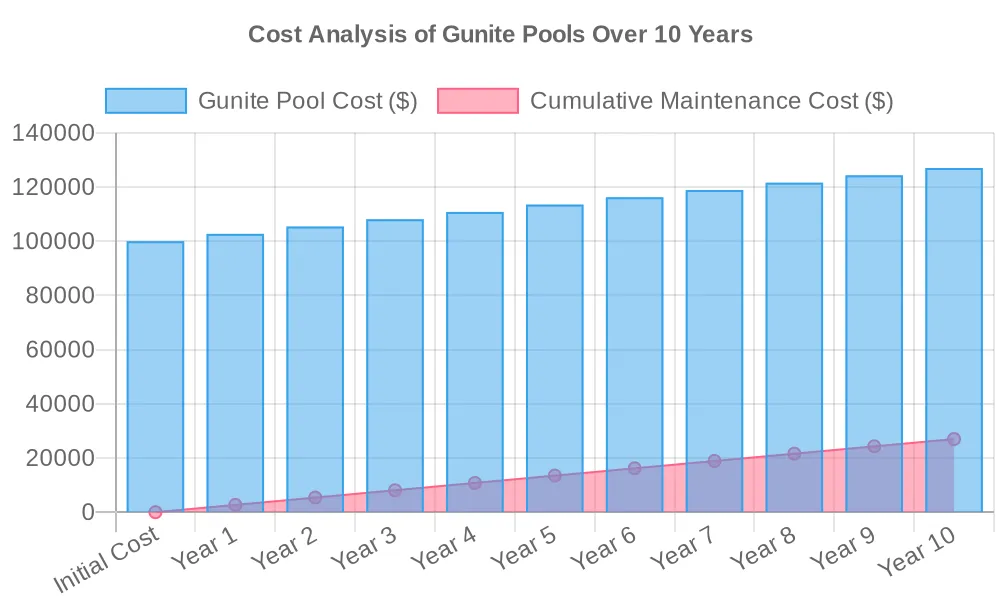
Is a Gunite Pool Right for You?
Deciding on a gunite pool is a decision that involves weighing the benefits of customization and durability against the financial and maintenance commitments. For those willing to invest in a high-quality, long-lasting pool that can be tailored to their specific desires, a gunite pool is an excellent choice.
In summary, gunite pools, synonymous with concrete pools, offer unparalleled durability, customization, and a touch of elegance. However, they come with significant financial and maintenance considerations. Understanding these aspects will help you make an informed decision, ensuring that if you choose a gunite pool, it becomes a cherished part of your home for years to come. Still stuck? Talk to us!!
Latest

How to Do Proper Gunite Pool Maintenance

Fiberglass vs Concrete Pools: Pros, Cons, and Cost Comparisons

What is the average concrete pool cost for homeowners today?
Categories
YOU'RE NOT IN THIS ALONE
We are with you every splash of the way
Need a pool fix or looking for an upgrade? We’re just one click away to help with all your pool needs.

